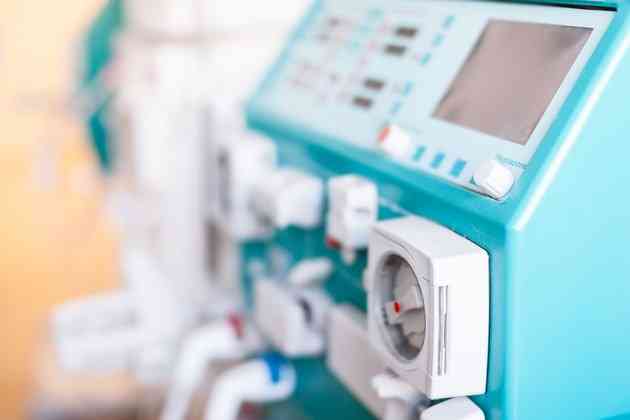How Do Histamines Work in the Body?

Histamine is a chemical which is made by the body and has a number of roles in the human body. Medications that interfere with histamine can be used to treat allergies as well as acid reflux. This molecule is able to affect the immune, digestive and nervous systems by affecting cells in many different parts of the body.
Histamine and Receptors
Histamine is a chemical which is made from an amino acid (histidine). Amino acids are the molecules which are used to make proteins. Histamine has a variety of effects throughout the human body. It works by binding to special proteins called receptors, according to a 2007 article in the American Journal of Clinical Nutrition ("Histamine and histamine intolerance"). Histamine receptors are designed to only bind to histamine. There are four different kinds of histamine receptors, each of which are present on different kinds of cells.
Receptors and Signaling
Once histamine binds to one of its receptors, a chemical signal is generated within the cell that has the histamine receptor, OzEMedicine explains. Consequently, the effects of histamine depend on the type of receptor involved. When histamine binds to the H1 receptor, it causes activation of a protein called phospholipase C, which then makes a chemical called IP3, which is involved in making blood vessels dilate. Binding of histamine to the H2 receptor activates a protein called adenylyl cyclase, which makes a chemical called cAMP. This compound is used as a chemical signal in many cells, and can stimulate the production of acid in the stomach. H3 receptors, on the other hand, block adenylyl cyclase when they bind to histamine; this can have an effect on signaling within the brain. The signals generated by the H4 pathway are not well understood.
Histamine and Inflammation
One of the main things that histamine does is cause inflammation. It has a particularly central role in allergic reactions. Allergens activate immune cells called mast cells, which then make histamine. According to OzEMedicine, histamine causes vasodilation (the expansion of blood vessels) as well as makes capillaries leaky (increased permeability). This causes the characteristic swelling and inflammation associated with allergic reactions. In addition, histamine causes the airways to shrink, which can make breathing difficult.
Digestion
Histamine also plays an important role in the production of stomach acid. Histamine is made by special cells in the stomach called enterochromaffin-like cells in response to signals from the nervous system. When histamine binds to H2 receptors in the stomach, it stimulates acid secretion by cells called parietal cells. This process is what is targeted by heartburn medicines called H2 receptor blockers.
In Brain
Histamine also plays an important role in a part of the brain known as the hypothalamus. According to a 2001 article in "Progress in Neurobiology" ("The physiology of brain histamine"), histamine is able to bind to three different receptors in the brain (the H1-3 receptors). This article notes that histamine may have an important role in modulating anxiety, the release of stress hormones and arousal.




